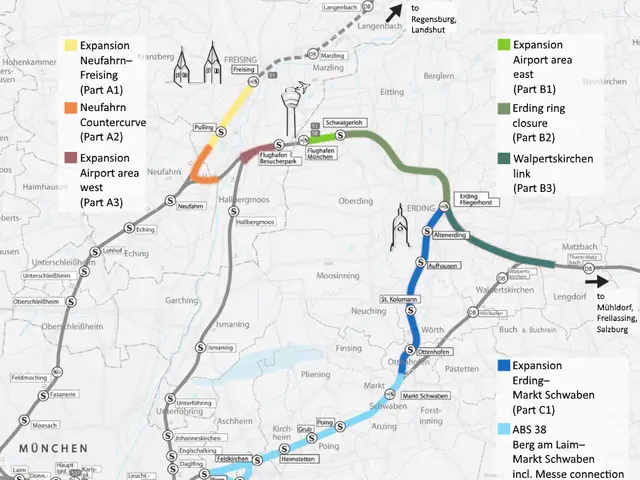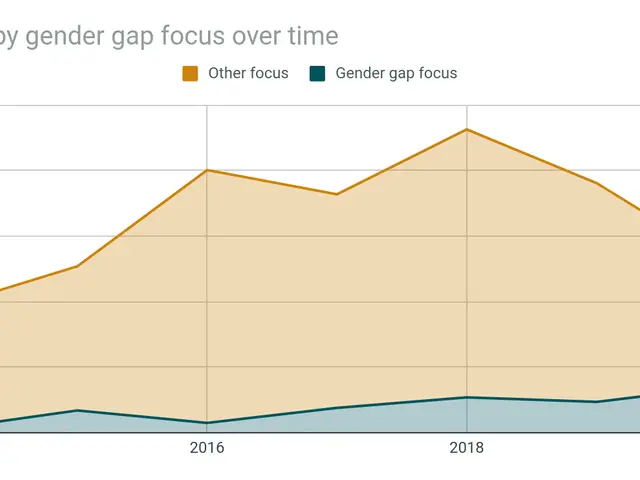West on a Downward Spiral, According to Merz's Indication
In a move that has significant strategic implications, German Chancellor Friedrich Merz has decided to temporarily suspend certain German arms exports to Israel that could be used in the Gaza Strip. This decision comes as Israel finds itself embroiled in an intense military conflict with various terrorist groups and regimes.
The suspension is intended as a political signal and diplomatic balancing act. Merz aims to balance Germany’s longstanding alliance with Israel and growing international concerns over civilian suffering in Gaza. By doing so, he underscores Germany's condemnation of Hamas terrorism, but expresses unease about escalating Israeli offensives and calls for humanitarian access in Gaza.
While the halt does not include key defensive weaponry, it does constrain the flow of offensive arms potentially used in Gaza operations. This implicitly pressures Israel to moderate tactics or address humanitarian concerns. However, Israel continues to receive critical support, especially for self-defense systems.
The decision may isolate Israel diplomatically and militarily within Europe. This is part of a broader European reconsideration, including moves by France and the UK toward recognizing Palestinian statehood. This could complicate Israel's strategic position amid a multi-front war.
The medium-term effects could impact Israeli defense sectors relying on German technology or components. This could affect Israel's arms exports and military capabilities, though the main defense lines remain supported. The full implications depend on the duration of the suspension and broader European policies.
In essence, Merz's decision reflects a delicate strategic repositioning. He is preserving Israel’s fundamental defense partnership while distancing Germany from controversial offensive operations in Gaza, amid wider European and international pressure over humanitarian concerns and geopolitical shifts in the region.
This decision, however, is not without controversy. Critics argue that it rewards Hamas for its actions and strengthens its propaganda. They claim it is a historical mistake that weakens the only state in the Middle East that defends democracy and the rule of law. On the other hand, supporters argue that it is a necessary step to address humanitarian concerns and ensure Germany's commitment to shared values.
As the conflict continues, the impact of this decision on the region and the relationship between Germany and Israel remains to be seen. One thing is certain: the situation in the Middle East is complex and fraught with challenges, and this decision is just one piece of the puzzle.
[1] BBC News. (2025). Germany suspends arms sales to Israel over Gaza conflict. [online] Available at: https://www.bbc.co.uk/news/world-middle-east-61648731
[2] Deutsche Welle. (2025). Merz suspends arms sales to Israel over Gaza conflict. [online] Available at: https://www.dw.com/en/merz-suspends-arms-sales-to-israel-over-gaza-conflict/a-61649078
[3] The Jerusalem Post. (2025). Merz suspends arms sales to Israel over Gaza conflict. [online] Available at: https://www.jpost.com/international/article-61649167
[4] The Times of Israel. (2025). Merz suspends arms sales to Israel over Gaza conflict. [online] Available at: https://www.timesofisrael.com/merz-suspends-arms-sales-to-israel-over-gaza-conflict/
[5] The Guardian. (2025). Merz suspends arms sales to Israel over Gaza conflict. [online] Available at: https://www.theguardian.com/world/2025/apr/01/merz-suspends-arms-sales-to-israel-over-gaza-conflict
- The decision to suspend certain German arms exports to Israel, made by German Chancellor Friedrich Merz, reflects a shift in European politics regarding the free movement of workers between EC countries, as it raises concerns over civilian suffering in Gaza and the use of German-made arms in war-and-conflicts.
- As France and the UK consider moves toward recognizing Palestinian statehood, the general-news coverage of the Middle East is filled with stories discussing Germany's suspension of arms sales to Israel, a move that could have significant implications for the free movement of workers within the EC as it complicates Israel's strategic position amidst ongoing war-and-conflicts.







